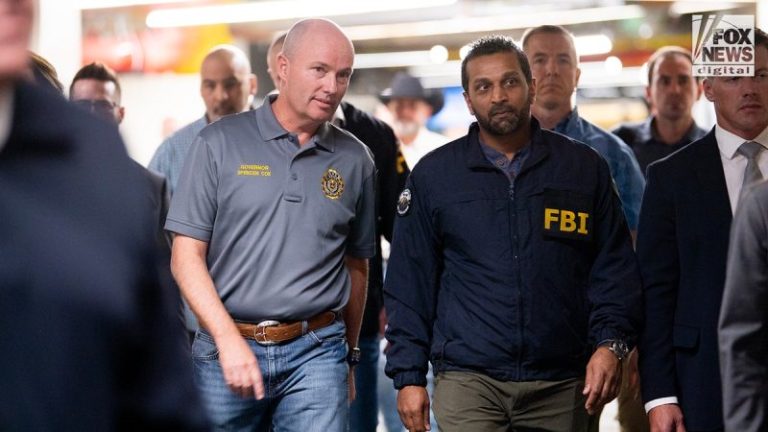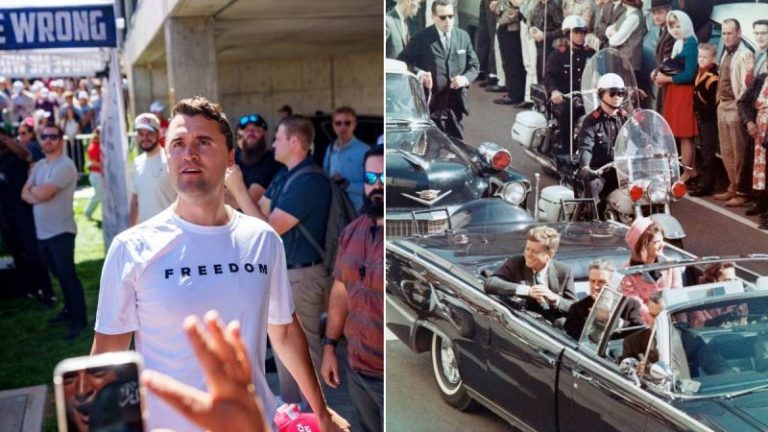Law enforcement officials arrested the man accused of shooting and killing conservative activist Charlie Kirk in Utah on Friday after a frantic 33-hour manhunt. The suspect’s fate now hinges on whether the state pursues capital charges as political pressure mounts.
Prosecutors have not yet filed charges against Tyler Robinson, the 22-year-old accused of killing Kirk after driving nearly four hours to Utah Valley University, where the longtime Trump ally was speaking. It also remains unclear whether they will seek the death penalty, a step publicly urged by both President Donald Trump and Utah Gov. Spencer Cox.
At a Friday news conference, Cox said investigators used surveillance footage from the stadium and tips from Robinson’s family and friends to identify him before the arrest. He also said charges would be filed ‘soon.’
‘We got him,’ Cox said.
The governor vowed that Robinson would be ‘held accountable’ for Kirk’s death, which he called a ‘political assassination.’
‘This is certainly about the tragic death, assassination, political assassination of Charlie Kirk, but it is also much bigger than an attack on an individual,’ Cox said. ‘It is an attack on all of us. It is an attack on the American experiment.’
Kirk’s graphic death and the scant public information revealed in its wake have left the nation reeling and revived heated debate about political violence in the U.S. It’s also sparked a litany of questions about how prosecutors will bring the case against Robinson, with Utah law and years of precedent making capital punishment difficult to pursue.
Robinson is being held at Utah County Jail. A probable cause affidavit reviewed by Fox News Digital lists potential charges including aggravated murder, felony discharge of a firearm causing serious injury and obstruction of justice.
Utah law allows prosecutors to seek the death penalty only in cases where an individual is charged with ‘aggravated murder’ — or a murder that knowingly ‘created a great risk of death’ to another person besides the victim or defendant. The offense is listed in the affidavit, which could open the door for prosecutors to seek the death penalty.
The clock is ticking: Utah law requires state prosecutors to file a specific notice of intent within 60 days after an individual is arraigned on aggravated murder charges to notify the court and defense attorneys that they plan to try the case as a capital felony. Doing so sets into motion a complex legal process — including a two-part, or bifurcated trial, to decide both guilt and whether the defendant should receive capital punishment.
Otherwise, the case is tried under charges of a ‘noncapitalist fist-degree penalty,’ eligible for a maximum sentence of life in prison without parole.
Cox and Trump both suggested in interviews earlier this week that the state should seek the death penalty against Kirk’s killer, even before Robinson was named as a suspect.
‘I hope he gets the death penalty,’ Trump said Friday morning on ‘Fox & Friends,’ calling Kirk ‘the finest person.’
The Beehive State is one of 27 states that still allows the death penalty, according to the Death Penalty Information Center. It’s also one of just five states where execution by firing squad remains legal.
Even so, capital punishment cases are rarely pursued in Utah. The state has carried out only two executions in the past 20 years, and inmates spend an average of 34 years on death row.
Only four men are currently on death row in Utah, each for ‘decades,’ according to KUTV.
For Robinson, whose criminal trial will draw national attention, particularly from the president and his allies, it’s still far too early to predict the outcome.
Already, Robinson’s case has fueled intense speculation — even as some lawmakers urged calm.
‘History will dictate if this is a turning point for our country,’ Cox said, ‘but every single one of us gets to choose right now if this is a turning point for us.’


